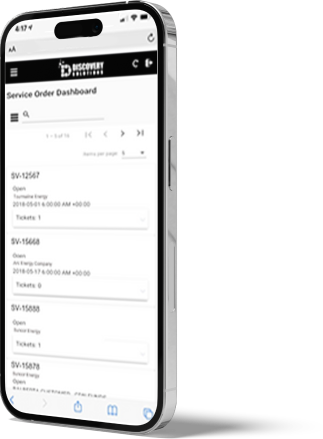Streamlining Oilfield Equipment Rental Operations: A Guide to ERP Implementation



Efficiency is paramount for achieving success in the highly competitive world of oilfield equipment rentals. Staying ahead of the curve and ensuring smooth operations is a formidable task. This is precisely where Enterprise Resource Planning (ERP) systems come into play. In this comprehensive guide, we will explore how ERP implementation can streamline your oilfield equipment rental operations and provide you with a step-by-step roadmap for a successful transition.
The Need for ERP in Oilfield Equipment Rentals
Operating in a demanding and high-stakes environment, oilfield equipment rental companies encounter substantial challenges. Efficiently monitoring inventory, managing maintenance schedules, and coordinating logistics can be overwhelming without the appropriate tools. However, the remedy lies in the implementation of ERP systems. These systems offer centralized control and real-time insights, empowering businesses to overcome these obstacles and attain operational excellence.
Pre-Implementation Preparation
Before starting an ERP implementation, thorough preparation is crucial. It is essential to define your goals, involve key stakeholders, and have a clear understanding of the desired outcomes for success. This meticulous preparation phase sets the foundation for a smooth journey ahead.
Selecting the Right ERP Solution
Choosing the right ERP system is of paramount importance. It is critical to consider factors like scalability, industry-specific features, and the unique needs of your business. By carefully evaluating various options, you can make an informed decision aligned with your long-term goals.
Planning the Implementation
Creating a robust ERP implementation plan is vital to achieve success. This plan acts as a roadmap, defining the project scope, establishing timelines, and assigning responsibilities. Effective communication is key, ensuring that all stakeholders understand their roles in the process. By adhering to this well-crafted plan, you can pave the way for a seamless and triumphant ERP implementation.
Data Migration and Integration
Efficiently transferring existing data to the ERP system is a crucial step in the process. It is vital to establish a well-designed strategy for seamless data migration and integration with other systems. This approach guarantees the preservation of historical data and the uninterrupted connectivity of processes.
Employee Training and Change Management
Your organization's employees are the users of the ERP system. It is essential to prioritize training and change management to ensure a smooth transition. Empower your team with the necessary knowledge and tools to effectively embrace the new system, ensuring a successful implementation.
Going Live: The Implementation Phase
The implementation phase marks a significant milestone, representing a critical juncture where meticulous execution of your plan becomes paramount. With unwavering attention to detail, emphasize thorough testing and troubleshooting to ensure a seamless go-live process. Stay adaptable in the face of challenges, ensuring a smooth transition to the operational phase.
Post-Implementation Optimization
Implementing an ERP system is not just about the go-live date; it entails a commitment to continuous improvement. Regularly assess workflows and processes to uncover opportunities for optimization. Harness the full potential of ERP features to maximize their effectiveness.
Measuring ROI and Success
To accurately evaluate the success of your ERP implementation, measuring the return on investment (ROI) is paramount. It is crucial to diligently track key performance indicators (KPIs) to ensure that the system is delivering the expected advantages. Adjust and refine strategies as needed to maximize ROI.
Real-Life Success Stories
Discover the invaluable lessons from the success stories of oilfield equipment rental companies that have harnessed the tremendous benefits of implementing ERP systems. Delve into their journey of achieving optimized inventory management, streamlined maintenance processes, and gaining a significant competitive edge.
Common Challenges and Solutions
The implementation of an ERP system can present challenges, such as resistance to change and unexpected technical issues. Nevertheless, these common obstacles can be overcome through practical solutions, facilitating a seamless transition and maximizing the advantages of the implementation.
Efficiency plays a crucial role in oilfield equipment rental operations. To achieve this, the implementation of an ERP system is essential. By carefully planning, providing comprehensive training, and continuously optimizing processes, your company can streamline operations, enhance productivity, and gain a competitive advantage in this demanding industry.

Book a Call



.png)
